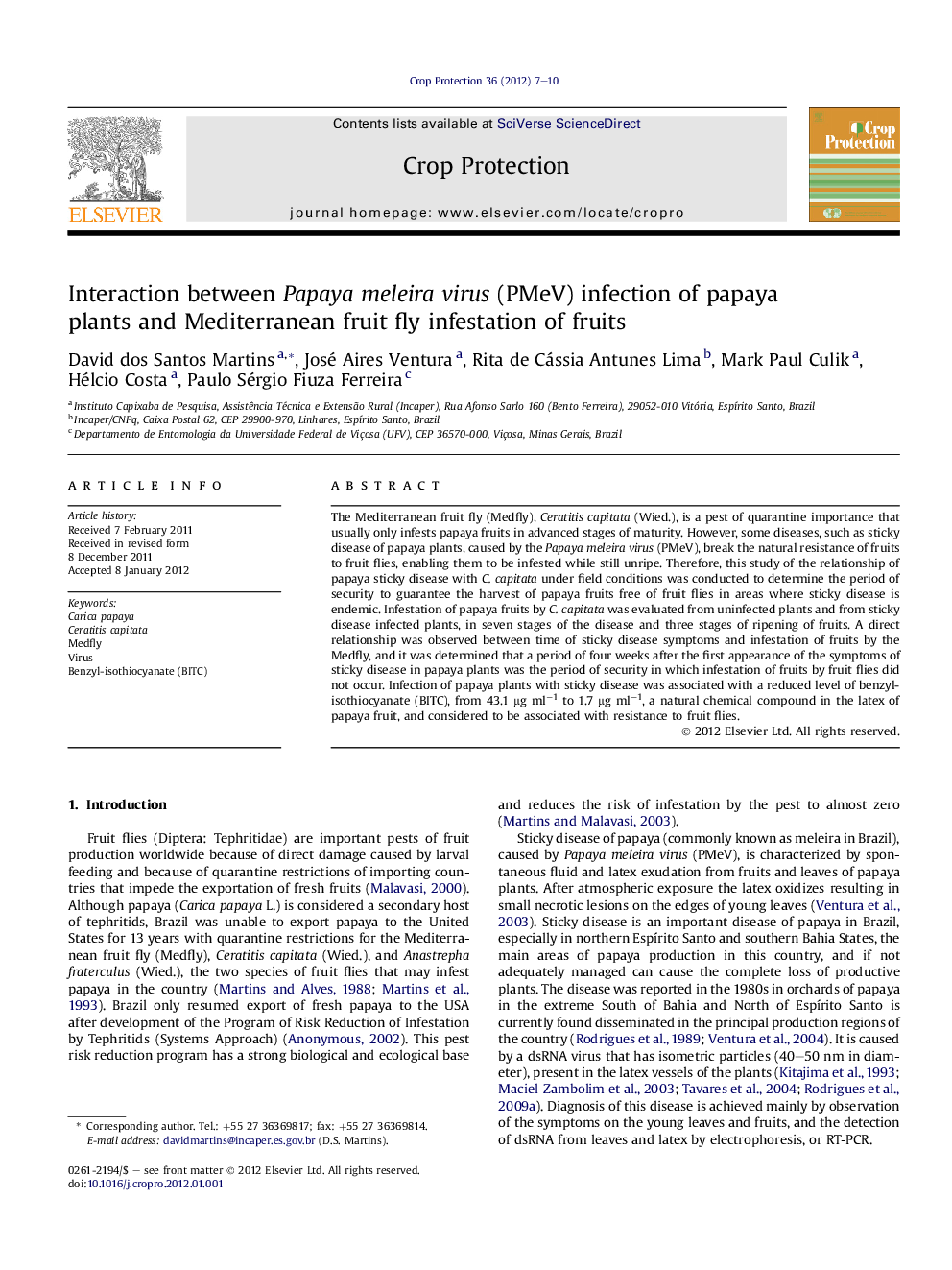| Article ID | Journal | Published Year | Pages | File Type |
|---|---|---|---|---|
| 4506469 | Crop Protection | 2012 | 4 Pages |
The Mediterranean fruit fly (Medfly), Ceratitis capitata (Wied.), is a pest of quarantine importance that usually only infests papaya fruits in advanced stages of maturity. However, some diseases, such as sticky disease of papaya plants, caused by the Papaya meleira virus (PMeV), break the natural resistance of fruits to fruit flies, enabling them to be infested while still unripe. Therefore, this study of the relationship of papaya sticky disease with C. capitata under field conditions was conducted to determine the period of security to guarantee the harvest of papaya fruits free of fruit flies in areas where sticky disease is endemic. Infestation of papaya fruits by C. capitata was evaluated from uninfected plants and from sticky disease infected plants, in seven stages of the disease and three stages of ripening of fruits. A direct relationship was observed between time of sticky disease symptoms and infestation of fruits by the Medfly, and it was determined that a period of four weeks after the first appearance of the symptoms of sticky disease in papaya plants was the period of security in which infestation of fruits by fruit flies did not occur. Infection of papaya plants with sticky disease was associated with a reduced level of benzyl-isothiocyanate (BITC), from 43.1 μg ml−1 to 1.7 μg ml−1, a natural chemical compound in the latex of papaya fruit, and considered to be associated with resistance to fruit flies.
► Papaya meleira virus (PMeV) breaks the resistance of papaya to medfly. ► Plants with PMeV are directly related to infestation of papaya by fruit flies. ► Four weeks after first symptoms was security against medfly in papaya fruit. ► PMeV infection was associated with a reduced level of benzyl-isothiocyanate (BITC).
